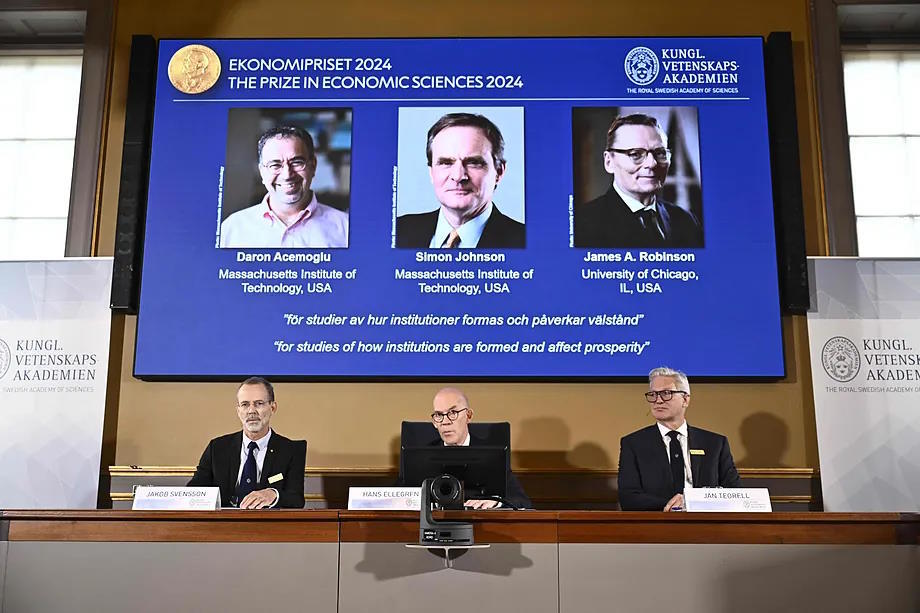Economists Daron Acemoglu, Simon Johnson, and James A. Robinson have been awarded the Nobel Prize in Economics in 2024. The Royal Swedish Academy of Sciences has decided to grant the prize to these economists "for their studies on how institutions are formed and how they affect prosperity."
"Global inequality is largely driven by differences in average incomes between countries," explained the institution at a press conference. The reasons why some countries are poor and others are rich, and why the differences between them are so persistent, "are not new questions," but they are "among the most urgent" in the social sciences.
Nevertheless, they detailed, addressing them is "extremely complex." The laureates "led new approaches, both empirical and theoretical, that have significantly advanced our understanding of global inequality."
From an empirical standpoint, their work has helped better understand the effects of institutions on prosperity. "They have identified the historical roots of the weak institutional environments that characterize many low-income countries today."
In this sense, the laureates' work has shown that one explanation for differences in countries' prosperity "are the social institutions introduced during colonization," which for the Academy is an important reason why former colonies that were once rich are now poor, and vice versa.
"Some countries are trapped in a situation of extractive institutions and low economic growth. The introduction of inclusive institutions would create long-term benefits for all, but extractive institutions provide short-term gains for those in power," they explain.
"Reducing the huge income disparities between countries is one of the greatest challenges of our time. The laureates have demonstrated the importance of social institutions in achieving this," highlighted Jakob Svensson, president of the Prize Committee for Economic Sciences.
Acemoglu and Johnson work at the Massachusetts Institute of Technology, while Robinson conducts his research at the University of Chicago.
Acemoglu also received the BBVA Foundation Frontiers of Knowledge Award in 2017 for demonstrating how institutions influence economic development.
Acemoglu, Johnson, and Robinson thus succeed American Claudia Goldin, who received the Nobel Prize in Economics in 2023 for her work related to women in the labor market.
